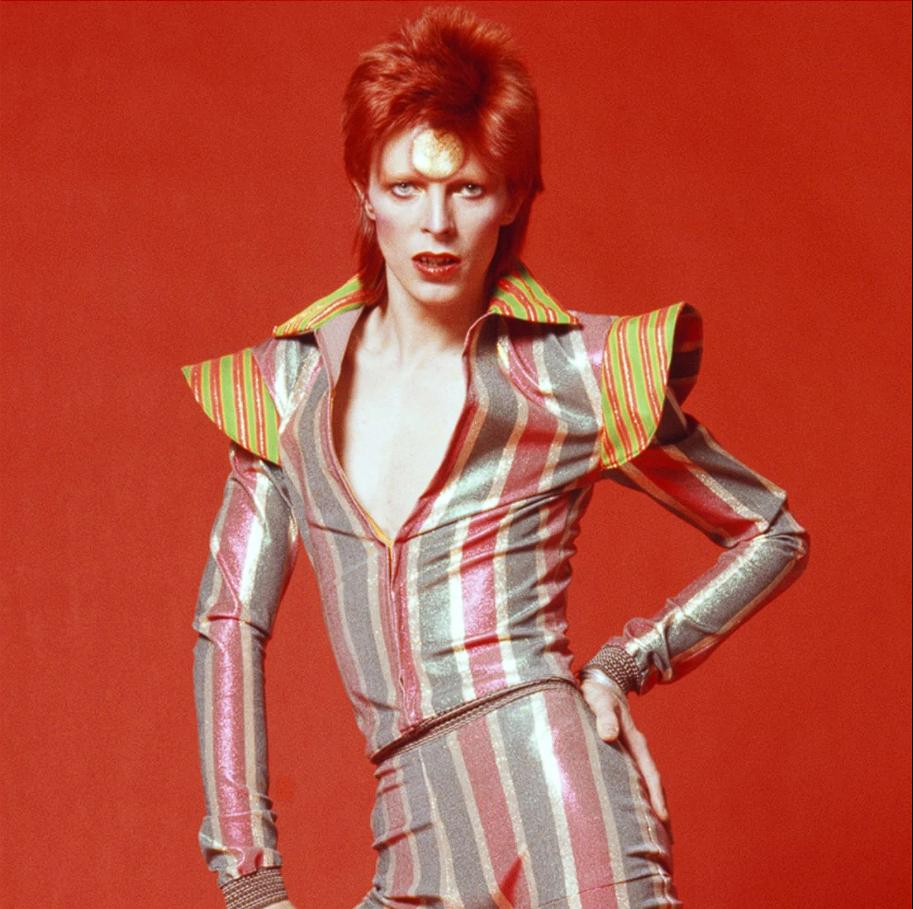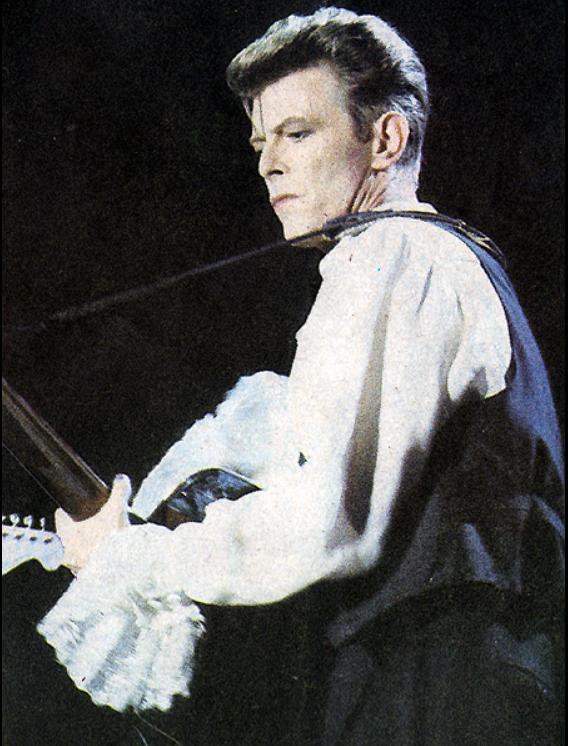David Bowie: The Alien Who Redefined Stardom
A Star Born to Shine
David Bowie was not of this world. He was something else entirely — a star whose brilliance defied expectations and norms. Born David Robert Jones on January 8, 1947, in London, Bowie became one of the most influential and enigmatic figures in music, art, and fashion. But he was never content to simply follow the rules. From the start, he carved his own path, embracing an ever-changing persona that challenged the very definition of stardom.
Bowie’s early life was marked by a deep passion for art and a desire to stand out. His creative mind and unconventional approach to music, style, and identity set him apart from the very beginning. He refused to be boxed in by the standards of his time, choosing instead to forge new paths, creating a persona that would transcend generations.
The Birth of Ziggy Stardust
A Revolution in Music and Identity
Bowie’s breakthrough came in the early 1970s with his creation of the androgynous alter ego, Ziggy Stardust. Ziggy was more than just a character; he was an idea, a symbol of rebellion, and a reflection of the time. With bright red hair and flamboyant costumes, Bowie pushed the boundaries of gender, identity, and sexuality, long before these concepts were widely accepted in mainstream culture. He was the epitome of freedom — an artist who was unafraid to be unapologetically different.
Ziggy Stardust wasn’t merely a persona — it was a movement. Through Ziggy, Bowie reached a new level of fame and artistic influence, challenging societal norms and offering a safe space for those who didn’t fit the mold. His music became a lifeline for the misfits, the outcasts, and those yearning for acceptance. Bowie’s ability to connect with his audience on a deeply personal level made him a beacon for anyone who had ever felt out of place.
The Creative Peak of the 1970s
Music That Transcended Genres
The 1970s were the peak of Bowie’s creativity, as he released some of his most iconic albums, including The Rise and Fall of Ziggy Stardust and the Spiders from Mars, Aladdin Sane, and Young Americans. These records were more than just music; they were cultural landmarks, with Bowie’s unique sound blending rock, glam, soul, and avant-garde influences. His lyrics were often cryptic, mysterious, and full of imagery, capturing the spirit of the time while also transcending it.
Bowie was not just a musician; he was an innovator, blending sounds and genres in ways that had never been done before. His music spoke to the heart of the 70s, but it also laid the foundation for the decades that followed. Each album was a reflection of a different phase in his life, a different persona, and a different vision of the world.
More Than Music: An Artistic Revolution
A Vision Beyond the Stage
But Bowie wasn’t just a musician — he was an artist in the truest sense. He was an actor, a designer, a producer, and a collaborator. His impact was not limited to the stage or the studio. He acted in films like The Man Who Fell to Earth, and his influence on fashion was just as revolutionary as his influence on music. His style became iconic, a constant reinvention of what it meant to be cool, strange, and stylish.
Bowie’s androgynous looks and boundary-pushing fashion choices became the benchmark for individuality, inspiring countless fans and fellow artists alike. His presence wasn’t just about the music; it was about everything he represented — creativity, freedom, and the refusal to conform.
Struggles Beneath the Surface
Vulnerability and Transformation
Despite his otherworldly persona, Bowie was deeply human. Beneath the eccentricity, there were moments of vulnerability and introspection. He openly struggled with addiction, with fame, and with his sense of identity. But rather than shying away from these struggles, he turned them into art, creating music that spoke to the alienation and longing we all feel. Songs like Space Oddity, Heroes, and Life on Mars? became anthems for the lost, the misfits, and the dreamers.
Bowie’s willingness to confront his personal demons gave his work a rawness and authenticity that resonated with generations of fans. His music became a mirror of his own journey — a reflection of his triumphs, his failures, and his constant quest for self-discovery.
A Constant Reinvention
From Ziggy to Blackstar
Bowie’s ability to reinvent himself was legendary. From Ziggy Stardust to the Thin White Duke, from the Berlin Trilogy to the electronic pop of the 80s and beyond, Bowie’s career spanned decades and never lost its sense of innovation. He embraced change and challenged his fans to do the same. His music was a mirror to the world, constantly reflecting the times while always remaining ahead of them.
Even in his final years, Bowie continued to push boundaries. His album Blackstar, released just days before his passing, was a fitting farewell — a work of art that demonstrated his commitment to innovation until the very end. Blackstar was not just an album; it was a statement, an exploration of mortality, legacy, and the unknown.
The Legacy of an Alien
David Bowie Lives On
In 2016, after a battle with cancer, David Bowie passed away. But even in death, he left behind a legacy that continues to inspire and challenge. His influence can still be felt in music, fashion, art, and culture. Bowie was more than just a musician or an icon; he was a force of nature — a man who refused to conform, who lived true to himself, and who showed the world that it was okay to be different.
He was, and always will be, the alien who came to Earth and showed us what it meant to truly live — unafraid, unapologetic, and unafraid to be ourselves.
“I don’t know where I’m going from here, but I promise it won’t be boring.”
— David Bowie
